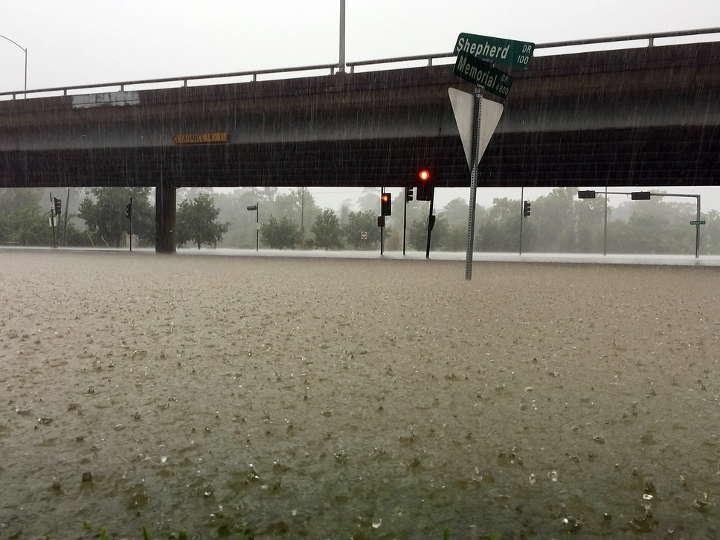
A solid majority of Harris County residents support the upcoming $2.5 billion bond election, intended to pay for projects to lessen the risk of future flooding, according to a survey released Monday by the Hobby School of Public Affairs at the University of Houston.
Sixty-two percent of people who said they are certain to vote said they will vote for the bond proposal. That drops to 55 percent among all respondents. Just 10 percent said they will vote against it; more than one-third said they aren’t sure.
The findings come from the second round of questioning in a multi-year effort to determine how Houston-area residents recover from Hurricane Harvey. Money from the bond will be used for flood prevention and mitigation projects in Harris County. The election is set for Aug. 25, with early voting starting Wednesday, Aug. 8.
Both people whose homes flooded during Harvey and those whose homes did not flood support the bond, although support is somewhat stronger among those who reported property damage. Support crossed partisan lines.
“People see flooding as a Houston and Harris County problem, not a problem affecting only certain neighborhoods or people,” said Jim Granato, executive director of the Hobby School. “They believe the region’s future will be decided, at least in part, by how we respond.”
Some specifics:
- People who sustained property damage from Harvey are slightly more likely to support paying for flood control projects than those who have not flooded, at 60 percent vs. 52 percent. Those affected by previous storms, however, reported similar levels of support as those who have never suffered damage, 56 percent vs. 55 percent.
- Older and better-educated residents reported significant support, with 61 percent of those 46-65 in favor, along with 69 percent of college graduates. Just 18 percent of those 18-25 said they support the bond; 59 percent said they were unsure.
- 58 percent of Republicans and 63 percent of Democrats support the proposal.
- 67 percent of respondents said global warming poses a threat of future flooding in the Houston area.
- Almost 88 percent said the state should spend money from the Rainy Day Fund to assist local communities after flooding.
- People who report moving to Harris County from elsewhere are more likely to support using bond funds to pay for prevention and mitigation than those who are lifelong residents, at 58 percent vs. 51 percent.
“Houston was justifiably proud of its can-do spirit during the flood, as neighbors rescued neighbors,” said Renée Cross, senior director of the Hobby School. “Yet these findings tell us residents are also ready to change the status quo and do something about the ongoing flooding.”
The project is supported by the National Science Foundation and designed to provide scientifically valid data about how residents in Harris, Fort Bend, Brazoria and Montgomery counties recover from the storm and their level of support for public policies aimed at future disasters.
Additional researchers involved in the project include Pablo M. Pinto, director of the Center for Public Policy at the Hobby School; Man Chiu “Sunny” Wong, an economist at the Hobby School; Ching-Hsing Wang, Hobby School research fellow; and Hobby research associates Mark Jones and Bob Stein, both political science professors at Rice University.
The survey was conducted between June 25 and July 31, using both landline and cell phone numbers. It included both people who participated in the initial survey and first-time respondents. The margin of error is +/- 3.4 percent.
Results from the first round of surveys were reported in February and found that almost one-third of Houston-area residents sustained flood damage to their homes; more than half said Harvey negatively affected their household finances.
While support for various mitigation measures – including building a third reservoir – was strong, people in the initial round of questioning were less positive about higher taxes to pay for them.
Pinto said the shift in thinking about paying for flood mitigation suggests people now view persistent flooding as more than a nuisance, regardless of whether they have personally experienced flooding.
“They are worried that the image of roads and houses submerged by floodwaters will make Houston less attractive to future residents and businesses,” he said. “This really is a change in attitude.”